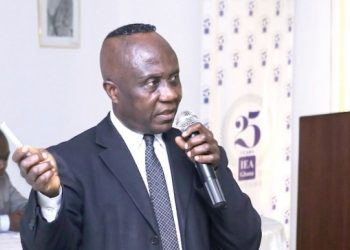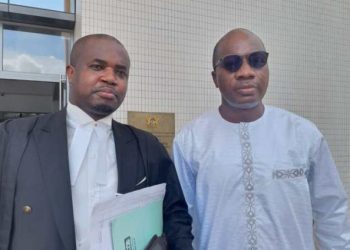The Dean of the Law School, University of Professional Studies, Accra (UPSA), Professor Kofi Abotsi has described as dysfunctional, the appointment of Parliamentarians onto Governing Boards of certain government agencies.
Speaking on a show monitored by Plan B FM on Monday, Prof Abotsi questioned how the Public Accounts Committee (PAC) of the legislative arm of government can hold other government institutions accountable if its Parliamentarians are associated with such bodies.
Tagging the act as unconstitutional, Prof Abotsi stated that the move generates possible conflict of interest.
“And don’t you forget MPs are still on boards which in my opinion, is very dysfunctional and very negative operation of the Constitution. I will go far to suggest it is actually unconstitutional. Because, Parliament is supposed to check Ministries Departments and Agencies that is why we have the Public Accounts Committee.
“And so you can imagine that a particular government agency is going to defend itself before Parliament’s PAC and you have a Member of Parliament either on that committee or is in Parliament and sits on that Board. The conflicts are too open and it creates all kinds of difficulties,” he told host Winston Amoah.
The legal practitioner in his contribution to the topic; “How Ghana would have been if we implemented the white paper of the Constitution Review Commission of 2012”, said the country’s current government structure is imbalanced.
According to him, other arms of government responsible for intermediary, accountability, and oversights have “creepily” weaken themselves.
This, he added has given the Executive gigantic power in governing affairs of the country.
“It is part of the reason the Executive has been reinforced. The only body that has become very powerful, under the Fourth Republic is the Executive. And all the other organs have gradually and in a very creeping way, weaken themselves.
“I am not saying the Executive has weakened them. They [the other bodies] have actually happily weakened themselves and we now have a towering Executive and a very weak set of other institutions. That is why our current arrangement is extremely skewed and imbalanced,” he said.
Ghana started a process to review the 1992 Constitution In 2010.
By June 2012, government issued a white paper on the Commission’s report. In the white paper, government accepted the recommendation that the Chairperson and Deputies of the Electoral Commission should be vetted and approved by Parliament.
The erstwhile NDC government also accepted that the President be given the free will to appoint Ministers and not more than half from Parliament.
It’s, however, been nine years and none of the aforementioned have been implemented despite calls for a new constitution.










Discussion about this post